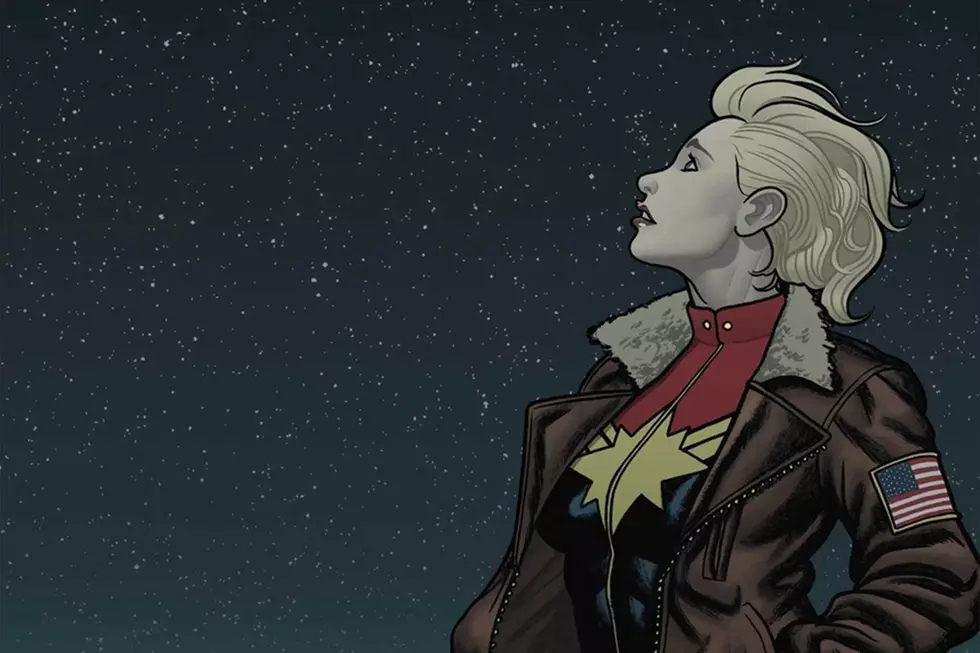
Who Owns Power Girl? On Ownership, Gerry Conway, and DC Entertainment’s Royalty System
Writer Gerry Conway, who created several characters during his time at both Marvel and DC (including Firestorm, Killer Croc, Vixen and The Punisher) took to his blog recently to discuss and throw a spotlight on the way DC pay credit to their creative talent for the characters they created while working for the company.
By introducing what they call ‘creator equity participation’, DC was one of the first publishers to offer royalty payments to creators for when characters were used outside of the comics medium --- such as in television, cinema, toys, or video games. Chuck Dixon, for example, is paid whenever Bane appears in a film or video game, as he is cited as the character’s co-creator.
However, there is one particular aspect to equity that merits special note: DC has the power to determine whether certain characters are ‘derivative’, in which case the authors who created the new characters will not receive royalties for that character. In his post, Conway says that this proved to be the case for Power Girl, who DC ruled is derivative of Superman, and therefore not eligible for creator equity participation.
In order for a writer or artist to submit themselves for creator equity participation, they must send DC a new claim for each character they created --- which in Conway’s case probably numbers in the hundreds. The company will then decide whether the claim is valid, or whether the character is considered derivative, and therefore under the claim of whoever created the earlier character.
Under this system, Superboy, Supergirl and Power Girl are all derivative of Superman, and were therefore not created by the people who actually came up with them, but instead by the people who created Superman --- those being, of course, Jerry Siegel and Joe Shuster.
It’s important to note that this is not actually a new policy for DC, despite Conway calling it a change. The policy has been in effect for decades, and in fact we wrote about it last year when writer Alan Brennert revealed that he would not receive equity for the appearance of Barbara Kean on the current Gotham TV series.
But it remains a topic that's worth raising and addressing, because it shows how painful and frustrating the work-for-hire system can be. To illustrate those frustrations, Conway raised the example of Caitlin Snow.
Caitlin Snow was created during the New 52 by Sterling Gates and Derlis Santacruz as the new alter-ego of Killer Frost, a Firestorm villain. The character currently appears on The CW’s The Flash TV series, played by actress Danielle Panabaker. Gates and Santacruz are apparently unable to claim equity on the use of the character, as Killer Frost is a legacy creation.
The original Killer Frost was introduced by Conway and Al Milgrom decades ago, meaning that Caitlin Snow is a derivative of Conway and Milgrom’s original creation. But Caitlin Snow on television has not adopted the codename Killer Frost, meaning that Conway and Milgrom are also unable to make an equity claim.
So Caitlin Snow is derivative of a character who does not yet exist onscreen, which means neither the creators of Caitlin Snow nor the creators of Killer Frost can claim her.
Torturous, isn’t it?
The derivative aspect of DC's policy is fairly well known within the industry. So why does Conway bring it up as though it’s something new? Well, this 2013 blog post by Mark Waid sheds a little light on things:
The confusion about extra-media compensation arises in that [Paul] Levitz, while he was DC’s publisher, made it a policy to cut respectable bonus checks to writers and artists, regardless of legal obligation, if elements from any of their stories (even work-for-hire ones) made it into outside media adaptations movies or TV shows... It wasn’t legally necessary, it was totally at Paul’s discretion and only Paul knows what math he used to determine what he felt would be fair, but it was a goodwill gesture from an exec sympathetic to the creative community.
And most critically, it wasn’t a written policy or guarantee. It was a courtesy.
Once Paul left, that courtesy was deemed no longer necessary by the executives and the policy was rolled back, as was DC’s absolute prerogative.
DC hasn't changed its policy, but in Levitz's absence it may have changed how it applies and enforces the policy.
An understandable argument can be made for why DC wouldn’t need to offer equity in the case of Caitlin Snow. She isn’t currently Killer Frost in the TV show, nor does she share many traits with the New 52 version of the character beyond the name. If DC had offered equity to Gates and Santacruz, it might have added further complications to the debate surrounding creators' rights, as Conway and Milgrom could argue that the claim properly belongs to them.
It’s a difficult side of the business to unpack. From a strictly legal standpoint, creators have little recourse here, unless DC can be persuaded to review its established terms and practices. Conway's story may ultimately serve as another cautionary tale in an industry that's already full of them.
As Mark Waid says in his blog post: “[W]e knew the rules going in."
More From ComicsAlliance









